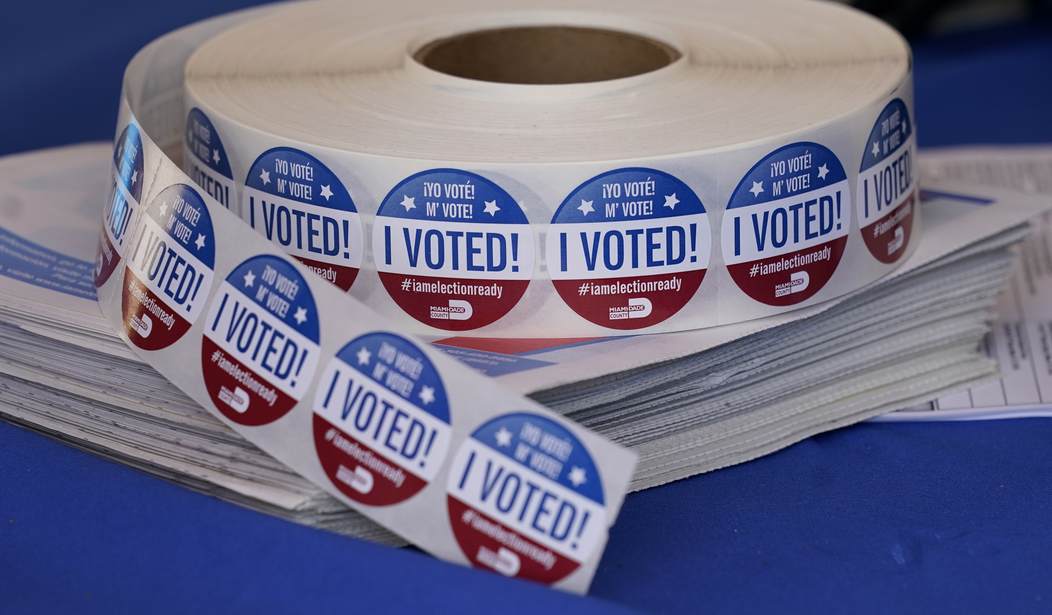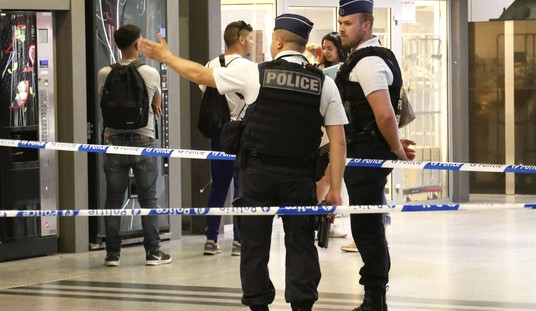It appears that attorney Marc Elias, who has also served as attorney for Hillary Clinton's campaign, has found yet another voter ID law to go after. Gov. Mike DeWine, a Republican in Ohio who last November was reelected by 25 points, signed into law HB 458 last Friday to strengthen voter ID, among other provisions. That same day, Elias' law firm sued Ohio's Secretary of State Frank LaRose, later sending out a press release referring to it as "a new voter suppression bill."
"@EliasLawGroup attorneys representing the Northeast Ohio Coalition for the Homeless, the Ohio Federation of Teachers, the Ohio Alliance for Retired Americans, and the Union Veterans Council filed a lawsuit challenging [...] a new voter suppression bill" https://t.co/4sc3n1hnX7
— Elias Law Group (@EliasLawGroup) January 8, 2023
The lawsuit is on behalf of Northeast Ohio Coalition for the Homeless, the Ohio Federation of Teachers, the Ohio Alliance for Retired Americans, and the Union Veterans Council, and also mentions that the group is working to "challenge these provisions that will disproportionately harm young, elderly, and Black Ohioans, military servicemembers, and other Ohioans living abroad."
Not only does it use buzz words like "voter suppression," the press release dismisses the notion of concerns about election fraud completely. "While election fraud is virtually nonexistent in Ohio, voter suppression is, unfortunately, alive and well," it reads in part.
In addition to retweeting the law group, Elias had also before and since then tweeted various threats and promises of a lawsuit.
Ohio will be sued. Stand by. https://t.co/POQGIuroKz
— Marc E. Elias (@marceelias) January 6, 2023
"This is the first lawsuit to be filed against H.B. 458, notably the first voter suppression law to be passed in the wake of the 2022 midterm elections."https://t.co/BC8C1lfcRK
— Marc E. Elias (@marceelias) January 7, 2023
I promised that Ohio would be sued if Gov. DeWine signed the GOP voter suppression bill. I always keep my promises. https://t.co/BC8C1lfcRK
— Marc E. Elias (@marceelias) January 7, 2023
Recommended
Republicans should know, I keep my promises. https://t.co/in9fAbcJkk
— Marc E. Elias (@marceelias) January 7, 2023
Beyond his incessant tweeting from the day the suit was brought, Elias also tweeted an article from the Columbus Dispatch, including an excerpt bragging about how quickly his group filed the lawsuit.
"The suit was filed within hours of DeWine's signature on behalf of groups that represent teachers, retirees, veterans and people experiencing homelessness." https://t.co/tGtlDW6aSd
— Marc E. Elias (@marceelias) January 9, 2023
Secretary LaRose has also tweeted though, demonstrating he's prepared to fight and doesn't fear the lawsuit. Not only have the secretary and state lawmakers responded to the call for having stricter voter ID, but, as LaRose's tweet highlights, such laws have been upheld by the courts before.
It's no surprise that Hillary Clinton’s lawyer & shameless self-promoter @marceelias is throwing himself into Ohio’s business, suing to throw out our photo voter ID law & weaken our elections.
— Frank LaRose (@FrankLaRose) January 10, 2023
This was tried and failed in TX & it will fail in Ohio too.https://t.co/Qwk7XEUOcV
Other provisions of the law, as laid out in a press release from Secretary LaRose's office, include:
- Eliminating early voting on the Monday before Election Day to allow our county boards of elections adequate time to prepare for Tuesday elections. The bill provides discretion to the Secretary of State to reallocate those six hours of early in-person absent voting previously available by adding hours on Monday through Friday of the preceding week;
- Eliminating August special elections – a costly, low-turnout, and unnecessary election for our county boards to administer – unless it involves a political subdivision or school district that is in a state of fiscal emergency;
- Shortening the deadline to apply to cast absent voters’ ballots by mail from noon on the third day before Election Day to the close of business on the seventh day before Election Day to ensure adequate time for applications to be processed and that voters do not unintentionally disenfranchise themselves by procrastinating too close to Election Day.
The press release includes a statement from the secretary as well. "Ohioans are clearly supportive of strict photo ID for voting and we have found a common-sense way to make it happen that ensures voters are not disenfranchised," he said. "No piece of legislation is a silver-bullet solution, but we are once again showing Ohioans that we take their concerns seriously and are dedicated to continuously improving our elections."
Also cited is support for voter ID according to a multitude of polls, pointing out that support is consistent across various demographics:
NPR/PBS Newshour/Marist: 79% of voters believe government-issued photo ID should be required, including majorities of Democrats (57%), Republicans, Independents, whites and nonwhites.
Pew: 76% of voters, including 61% of Democrats, favor “requiring all voters to show government-issued photo identification to vote.”
CNN(opens in a new window): 64% of voters, including 65% of minority voters, 69% of Independents and 65% of moderates, believe requiring photo ID would make elections fairer.
Honest Elections Project(opens in a new window): 77% of voters, including Republicans (92%), Independents (75%), and Democrats (63%), support requiring voter ID 64% of Black voters, 77% of Hispanics, and 76% of low-income voters reject the notion that presenting a form of ID at the ballot-box is a “burden.”
Monmouth University: 4 in 5 Americans (80%) support requiring voters to show photo ID.
Grinnell College: 56% of voters oppose eliminating state laws that require photo ID
Fox News(opens in a new window): 77% of voters believe a state or federally issued photo ID should be required.
Rasmussen: 75% of voters say showing a photo ID is necessary for a “fair and secure election process,” while 85% of voters said it is “common sense” to require photo ID.
Elias' name might not sound familiar merely because he is a Clinton lawyer, but also his shenanigans throughout 2021 which Townhall covered. In a since deleted tweet from April 1 of that year, he implied that Georgia voters were not smart enough to vote by mail using their ID. Georgia's voting laws have been upheld. And, when it comes to claims of voter suppression, the state has seen record voter turnout. Former Gov. Terry McAuliffe (D-VA), who ultimately lost to Gov. Glenn Youngkin (R-VA) in November of that year, also hired Elias weeks before the election, despite how he assured voters he would not question the election results if he lost. This raised eyebrows not only about Elias, but about McAuliffe as well.
When not tweeting about voter ID laws as "voter suppression," Elias seems to be obsessively tweeting and retweeting about how radical he finds Republicans to be.
There are no moderates in the GOP conference. There are only lunatics and cowards. https://t.co/k10fTonH1F
— Marc E. Elias (@marceelias) January 8, 2023
No moderates in the GOP, just cowards. https://t.co/9u2kw6xpq8
— Marc E. Elias (@marceelias) January 10, 2023
There are no moderate Republicans.
— Rachel Vindman 🌻 (@natsechobbyist) January 10, 2023
There are only cowardly Republicans and radical Republicans.
























Join the conversation as a VIP Member